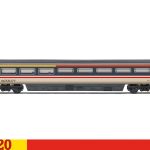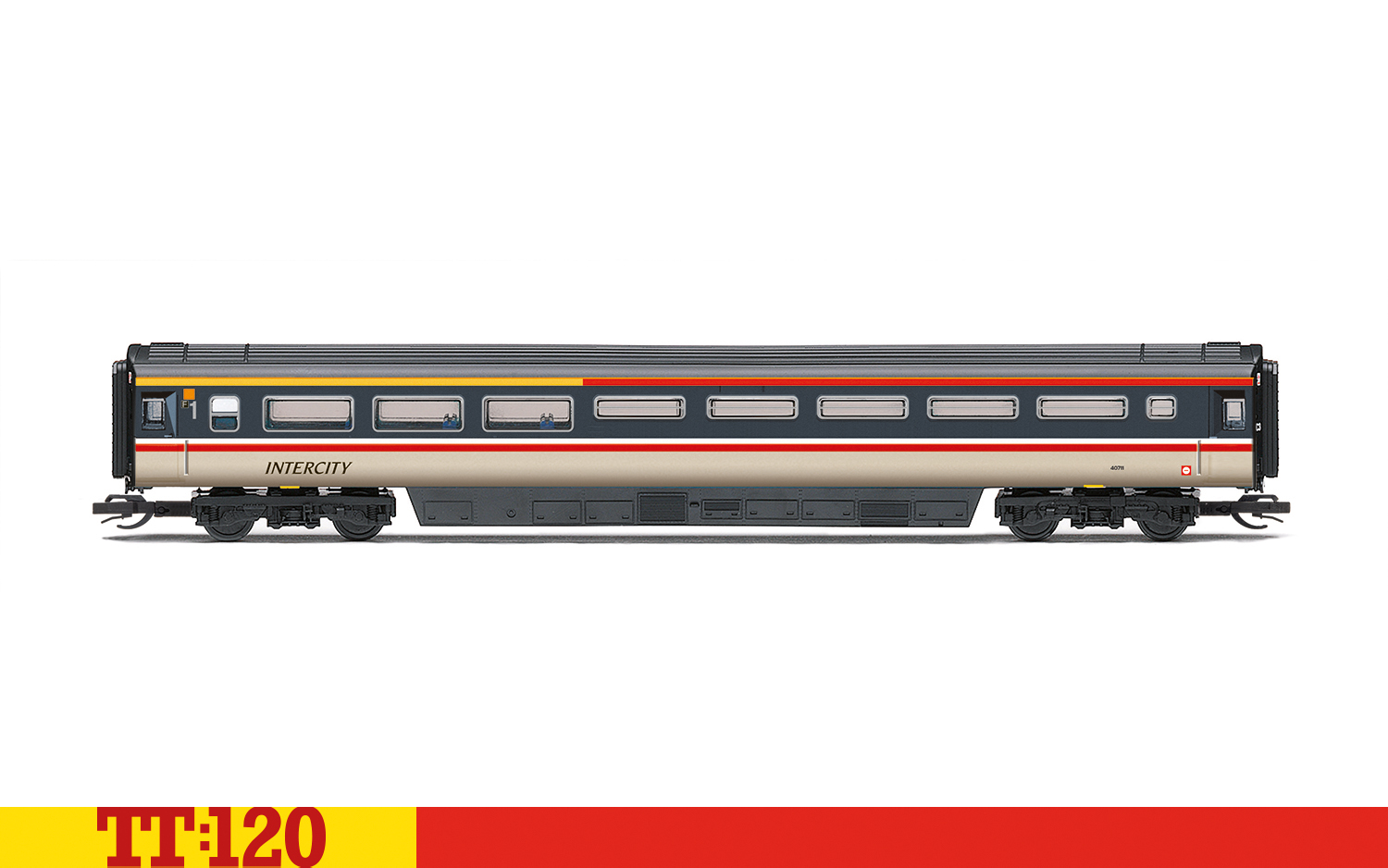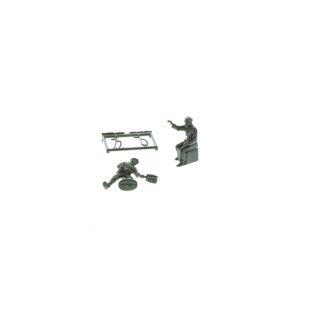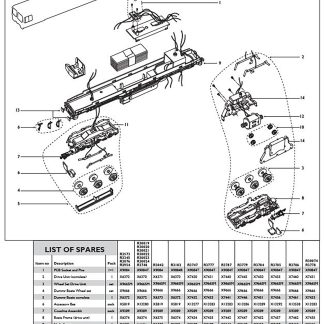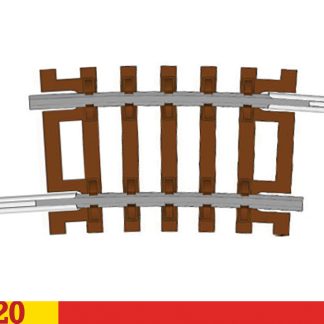Description
In-order to allow running at 125 mph on Britain's Victorian era railways, new rolling stock was needed by British Railways. Significant improvements over the Mk2 included new secondary air suspension between the bogies and the coach body as well as aerodynamic skirting on the underframe.
Mk3 coaches are 75ft (23m) long, enabling far greater capacity than older coaches. Mk3 coaches also incorporate disk brakes and wheel slip protection enabling faster deceleration. The first Mk3 coaches to be delivered were used as part of the HST prototype along with the two Class 41 diesel power cars in 1972. Mk3 coaches entered service in 1975 along with the Class 43 forming the iconic InterCity 125 trainset.
After the HST Mk3 coach variant was introduced, further Mk3 coaches were introduced to the West Coast Mainline for use as part of locomotive hauled trains. Whilst Mk3 stock is standard for HST units, the standard locomotive hauled stock is Mk3a. Mk3a stock differs from Mk3 stock due to the inclusion of buffers as well as a different electrical system that uses motor generator units in each coach to power air conditioning and other ancillaries Mk3a stock was built until 1984, before 3B stock with improved seating and lighting was built from 1985 to 1988.
As BR began to move away from the corporate blue livery, some of the Mark 3 coaches and complimentary Class 43 units were painted into a new Intercity Executive livery. This livery consisted of a dark grey upper body, a stripe of white and red and a light beige sand colour on the bottom of the body. While this would be a popular and long lasting livery, the name Executive was dropped from the side of the units as the livery took over as the only one applied to Intercity sets.

